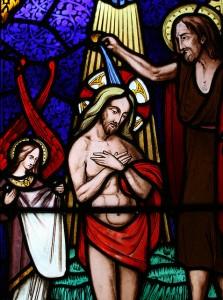
“Never say never whatever you do…” —An American Tail
Throughout my life, there are many things I never wanted to do. I had a mental list of 8 things. You might find this shocking—okay, no one who knows me will find this shocking—but my Never List was a way of protecting myself from re-living old trauma. Sort of a mental buffer to avoid facing my fears.
The problem is, I’m very self-aware and have never shied away from doing the next right thing, if I know that’s what I should do. So one step at a time, I’ve faced each item on my “Never List.” Not because I wanted to, but because, as life tends to do, I was faced time and again with a choice to either avoid and live half-heartedly, or live whole-heartedly (dangerously) and keep stepping in faith. In full disclosure, this does not look very glorious. My method of doing the next thing looks a lot like a curmudgeonly old man who, while muttering under his breath about how annoying the stray cat is, feeds it the best caviar.
So, thanks to God’s love, time, therapy, a husband who truly believes I’m a badass, my own willingness to face things that feel terrifying, and allowing myself to love others enough to do them, my Never List is completed this week.
I share this list with you as both a celebration of sorts and because I think it’s absolutely hilarious that I ended up doing every single thing on my list of things I never wanted to do.
Here’s the list, replete with the reasons I didn’t want to do them and the reality of how they are turning out:
I never wanted to date (I believed men only wanted to have power over women).
What I didn’t know was that the person who loves you would want to empower you, not tear you down. Dating Ethan was the first step of this very slippery slope of doing things I said I’d never do. I’m not sad about it 🙂
I never wanted to marry (I would have to give up my independence and freedom).
The person who loves you wouldn’t ask you to do that. Ethan loves me for who who I am without trying to change me. He has helped me to find more freedom, not less.
I never wanted to raise kids again. (Too much self-sacrifice and I never wanted to be needed again).
Although people get really offended whenever I say this, I still think it’s true. People choose to become parents for one of two reasons: ignorance or sainthood.
Yeah, go ahead and throw those arms in the air, but I’m not wrong.
If you’ve never parented, you might have all of these blissful ideas about it. If you’ve already parented, you know how hard it is. And if it is in a war-zone kind of environment as mine was the first go-round, you might think to yourself as I did, what could ever make me do that again? Love, hope, and grit–that’s what. Unlike when I was a child/teen, and didn’t have a choice of how much of myself to sacrifice, I can find a balance between meeting my needs and theirs now. I have a choice this time and that makes all the difference.
I never wanted to raise girls (What if evil men did things to them they did to me?).
This might happen. I hope and pray it won’t, but I’m also a realist and I can’t protect them at all times. But what I can do differently is listen and be a safe place for my girls when/if they tell me things that happen to them. I am proactively teaching them to know what to look for to determine if someone is trustworthy, how to take their own power–no matter how young they are–no matter how terrified or confused they are. I will be here for them.
I never wanted to have to cook for children with weird food allergies/sensitivities (being that parent).
Haha, I guess I will be that parent because my kids need that.
I never wanted to make homemade bread (symbolic of being treated as a voiceless less-than woman).
Have you tried store-bought Gluten/Dairy free bread? Enough said.
I never wanted to learn to sew/crochet (I failed time and again as a kid with shaky hands and was mocked by my mom when I made her sewn gifts).
My son wants to learn to sew and my daughter to crochet, so guess who will have to bite the bullet and learn? LOL. Shaky hands or no.
I never wanted to homeschool (Layers of shame: undiagnosed learning disabilities, a parent who constantly told me how stupid I was and couldn’t teach me, ATI).
So this is the last on the list and a big one. And as of a few days ago, we have decided that starting in the fall, we will be doing a hybrid homeschooling option for our kids: 3 days at home, 2 days at a school. It’s a huge leap of faith. My inner anxious introvert is screaming somewhere in the corner of my mind that I’ll never again have alone time and how in the world will I ever finish writing the books I’ve been plugging away at in my spare time (haha)? But this is what my kids need and I think this is the next right step for us.
I am looking forward to being with my kids more and for them to be less anxious and stressed than they are with school currently. I’m excited for them and for myself. We shall see what happens.
I guess that sometimes, healing looks like giving in and making a damn loaf of GF/DF bread.
What things on your Never List have you ended up embracing?






